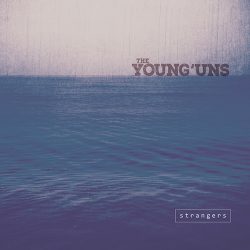
 Here is an astonishing album, musically and harmoniously spot on, that sweeps you up and teaches you a thing or two about people, places and events, leaving you with a sense of wonder. To encourage you, to listen to and buy the CD, to make every effort to see the Young’uns perform, here is, hopefully, a tempting glance into the appeal of the collection and the captivating nature of Sean Cooney, David Eagle and Michael Hughes, called The Young’uns as this was what they were called by older singers as a term of endearment in their early days of performing in the North East. Now, of course, they are established and holders of outstanding Folk awards.
Here is an astonishing album, musically and harmoniously spot on, that sweeps you up and teaches you a thing or two about people, places and events, leaving you with a sense of wonder. To encourage you, to listen to and buy the CD, to make every effort to see the Young’uns perform, here is, hopefully, a tempting glance into the appeal of the collection and the captivating nature of Sean Cooney, David Eagle and Michael Hughes, called The Young’uns as this was what they were called by older singers as a term of endearment in their early days of performing in the North East. Now, of course, they are established and holders of outstanding Folk awards.
One important point to make is that the notes that come with the CD are exemplary! A Place Called England, the first track, written by Maggie Holland is the only song here not penned by Sean but it sets the scene perfectly. “I rode out on a bright May morning like a hero in a song…” A thoughtful start, evoking a true sense of England: “For England is not flag or Empire It’s not money, it’s not blood. / It’s limestone gorge and granite fell, it’s Wealden clay and Severn mud.”
The second track, Ghafoor’s Bus, at once deepens the direction of the music and its traditional universality as well as its local specificity. So as the mist is “lifting from Roseberry Topping,” that iconic Cleveland landmark, and by way of the A19 and “The Boro’s lads and lasses,” we are introduced to Ghafoor Hussain, who, in his bus, from Dunkirk and beyond, has fed countless refugees with “beans and rice and rice and beans.” Straight away, we are treated to the skills of Sean’s songwriting. Significantly, providing the chorus here are The Aldeburgh Young Musicians, who, as an institution, regularly work with The Young’uns,
Be The Man tells the story of Matthew Ogston, who, because of religious bigotry, lost the love of his life, and as a result founded The Naz and Matt Foundation to cope with religious and cultural homophobia. A stunningly moving song. “Where ever there are hands to hold that’s where I will be.”
Dipping into recent history, Carriage 12, uses the startling tale of a terrorist event. Here we are able to see “Norman and Sadler, Skarlatos and Stone” as saviours on The Thalys Express from Amsterdam to Paris in 2015.
The testament and collection of stories continues with Cable Street. The events of 1936 are seen through the eyes of Johnny Longstaff. Standing firm in support of the Jewish community in the East End of London, we hear his story, conveyed in the simple and clear acapella singing of Cooney, Eagle and Hughes, with forceful internal rhymes, how “Mosely came trouncing, denouncing the Jews”. And how Johnny proudly relates, “I’ll not regret the day I stood and London stood with me.” With the remembered words, “No parasan.” They shall not pass. And so the day was won. “Moseley was limping away.” And fascism had been thwarted in Britain. Talk about bringing history to life, Sean, David and Michael have that art well under control.
The next track continues the tradition: Dark Water narrates Hesham Modamani’s swim to freedom from Syria across the Aegean Sea. A hugely moving story capturing a refugee’s determination, his escape and the joy of eventual rescue: “A million voices sing my name. / Dark water carry me.” With Aldeburgh Young Musicians providing backing vocals and strings. Bob Cooney’s Miracle is a true story of an incident during the fight against Franco in the Spanish Civil War where Bob from Aberdeen was miraculously able to feed those fighters under his charge with a loaf of bread and a tin of sardines! Lapwings convey the words of a soldier in the First World War on the front line who, when seeing a pair of lapwings flying north, dreams of where they might be flying to; “Soon they will be wheeling/ O’er northern moss and eastern fen.”
These Hands is the remarkable story of Sybil Phoenix who emigrated from Guiana in 1956. “With these hands.” In these three words Sean is able to epitomise all that Sybil has experienced and achieved in her life, someone who has devoted herself tirelessly to the community, fostering many children in Lewisham, working with the church. Achieving so much. A very remarkable woman who gets things done
And so to the last track, not only important, for its story, starting in Hartlepool, that tells, of the origin of Marks and Spencer, but also important for its last word: “strangers.” For these are the people who inhabit all these songs, and who we learn about, people of all races, of all sectors of society, people from different times, people who have lost everything, people who can teach us a thing or two, but above all, people, mostly strangers, who like us all, have (or had) thoughts, feelings, emotions and determination. You can’t say that about many, if any, music albums!
Summary
Harmonies and story telling above and way beyond the expected


